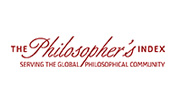Perpetual Present: Henri Bergson and Atemporal Duration
Matyáš
University of Cambridge
DOI: https://doi.org/10.24204/ejpr.v0i0.2629
Abstract
The aim of this paper is to demonstrate that adjusting Stump and Kretzmann’s “atemporal duration” with la durée, a key concept in the philosophy of Henri Bergson (1859–1941), can respond to the most significant objections aimed at Stump and Kretzmann’s re-interpretation of Boethian eternity. This paper deals with three of these objections: the incoherence of the notion of “atemporal duration,” the impossibility of this duration being time-like, and the problems involved in conceiving it as being related to temporal duration by a relation of analogy. I conclude that “atemporal duration” (which has unfortunately come to be regarded with suspicion by most analytic philosophers of religion) — when combined with Bergson’s durée to become an “atemporal durée” — is a coherent understanding of divine eternity.
Keywords: atemporal duration






